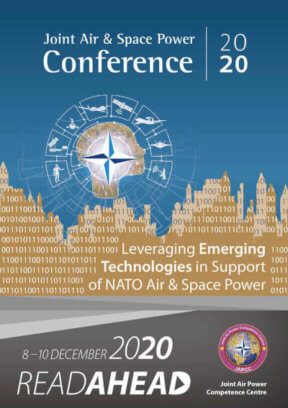Online Article at: https://www.act.nato.int/application/files/1415/7290/8629/190925_nicc.pdf.
SACT’s Address to The NATO Information and Communicators’ Conference (NICC), Warsaw, 23–27 September 2019
Ladies and gentlemen, Welcome to the 2019 NATO Information and Communicators’ Conference. This year, Allied Command Transformation is organizing this important event, and I want to thank our friends from Poland for hosting us in Warsaw.
In particular, I thank the Minister of Defence, Mr Mariusz Błaszczak for opening the conference.
I would also like to extend my personal thanks to those from NATO HQ for their strong involvement and support, especially Assistant Secretary General for Public Diplomacy, Ambassador Tacan Ildem and, NATO Spokesperson Ms Oana Lungescu.
Most importantly, I thank you all for participating. And, I urge you to take the discussions from your working groups, workshops and plenary discussions back to your commands, centres and institutions, to your commanders and leaders, and continue improving our military culture and NATO’s effectiveness in the information environment.
While I cannot be with you in person, I want to share my thoughts on the importance of the continuous development of different communications disciplines: Strategic Communications, Military Public Affairs, Information Operations and Psychological Operations.
The conference is taking place in the middle of the adaptation of NATO’s command structure and increasing competition in the information environment. It is also taking place in a year in which we celebrate NATO’s 70th anniversary. The anniversary of an open and transparent alliance, built on freedom, democracy, individual liberty and the rule of law.
Our cohesion, based on mutual trust and solidarity is the key of our success and longevity.
In our increasingly interconnected and networked world, our potential adversaries recognize the information domain and seek to exploit perceived weaknesses. And, certainly, in democratic nations there will surely be fissures that can be exploited. And, information, or better say – disinformation, is, among other asymmetric means, an important instrument that our adversaries use in their approaches.
We count on you, NATO’s team of networked communicators, to help us understand the information environment and to prepare us to rapidly identify and counter malicious actions in the future like we do it today. And, we also have to build our resilience against possible strategic shocks in the information domain, as much as possible.
Make no mistake: Information may be weaponized.
Technologies such as Artificial Intelligence may be used as a ‘weapon of the weaker’. A weaker in terms of conventional military capabilities, but capable of harnessing new technologies in non-kinetic, information domain. These new technologies may be applied to use personal data to build better microtargeting capabilities in an effort to control public opinion. This is why we not only need to understand the dynamics of media, social networking and our common need to relate and share deeply personal information. But, we also need to understand and use the potentials of new, disruptive technologies relevant to this domain.
I will illustrate it with one of ACT’s particular line of efforts, which is development of the Information Environment Assessment (IEA) capability. It aims at assessing the perception of our populations and potential adversaries of NATO strategic message, even with the weak signals.
This capability aims at allowing us to assess the effectiveness of NATO deterrence, especially in hybrid threat environments. We experimented it during the last year‘s Trident Juncture exercise and this effort received a valuable support and recognition from Assistant Secretary General for Public Diplomacy.
You are the front-line warfighters in this increasingly contested information environment. It is of paramount value for the Alliance to ensure you are resourced, trained, operating and succeeding like never before.
Again, thank you for your participation. I assure you, I will follow the outcomes of your discussions with a great interest. I wish you a very successful conference and many fruitful discussions.








